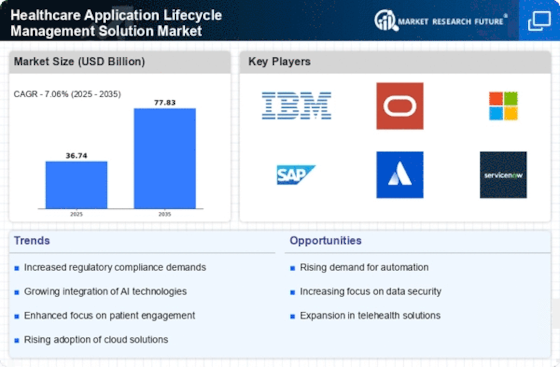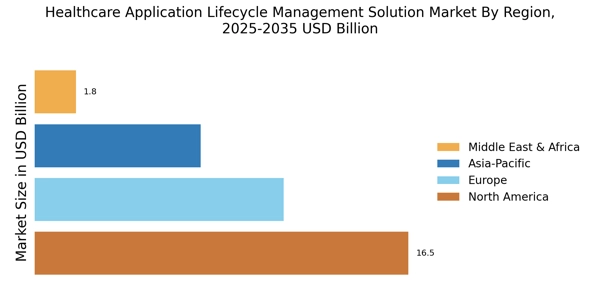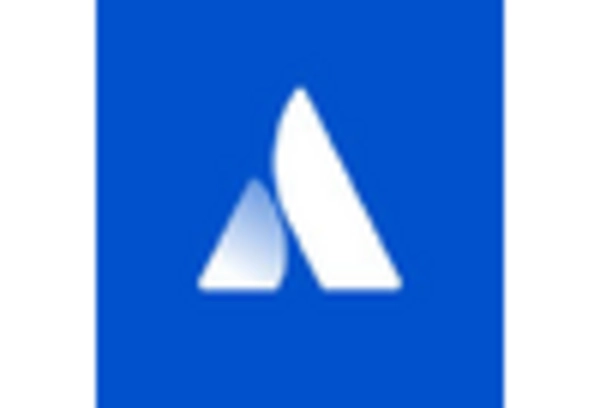Emphasis on Data Security and Privacy
Data security and privacy concerns are paramount in the Healthcare Application Lifecycle Management Solution Market. With the increasing digitization of healthcare records, organizations face heightened risks of data breaches and cyber threats. Consequently, there is a growing emphasis on implementing lifecycle management solutions that prioritize security throughout the application development process. The market reflects this urgency, as healthcare organizations allocate significant resources to safeguard sensitive patient information. This focus on security not only protects patient data but also enhances trust in healthcare systems, thereby driving the adoption of comprehensive application lifecycle management solutions.
Increased Focus on Patient-Centric Care
An increased focus on patient-centric care is reshaping the Healthcare Application Lifecycle Management Solution Market. Healthcare organizations are prioritizing solutions that enhance patient engagement and satisfaction, leading to a demand for applications that support personalized care. This trend is reflected in market data, which shows a rise in investments aimed at developing applications that cater to individual patient needs. By leveraging lifecycle management solutions, healthcare providers can ensure that applications are continuously updated and aligned with patient expectations. This focus on patient-centricity not only improves care delivery but also drives the overall growth of the application lifecycle management market.
Growing Adoption of Cloud-Based Solutions
The growing adoption of cloud-based solutions is significantly influencing the Healthcare Application Lifecycle Management Solution Market. As healthcare organizations seek to reduce infrastructure costs and improve scalability, cloud-based lifecycle management solutions offer a compelling alternative. These solutions enable healthcare providers to access applications and data from anywhere, fostering collaboration and innovation. Market analysis indicates that the cloud segment is expected to witness substantial growth, driven by the need for flexible and cost-effective solutions. This shift towards cloud adoption not only enhances operational efficiency but also supports the rapid deployment of new healthcare applications.
Rising Demand for Efficient Healthcare Solutions
The increasing demand for efficient healthcare solutions is a primary driver for the Healthcare Application Lifecycle Management Solution Market. As healthcare organizations strive to enhance patient care and operational efficiency, the need for robust application lifecycle management solutions becomes evident. According to recent data, healthcare IT spending is projected to reach substantial figures, indicating a strong market for solutions that streamline application development and management. This trend is further fueled by the necessity for healthcare providers to adapt to evolving patient needs and regulatory requirements, thereby driving investments in lifecycle management solutions that ensure compliance and improve service delivery.
Need for Interoperability Among Healthcare Systems
The need for interoperability among healthcare systems serves as a crucial driver for the Healthcare Application Lifecycle Management Solution Market. As healthcare providers increasingly utilize diverse applications and platforms, the ability to seamlessly integrate these systems becomes essential. Interoperability facilitates improved data exchange, enhances care coordination, and ultimately leads to better patient outcomes. Market data suggests that organizations investing in lifecycle management solutions that support interoperability are likely to experience enhanced operational efficiency and reduced costs. This trend underscores the importance of developing applications that can communicate effectively within the healthcare ecosystem.

















